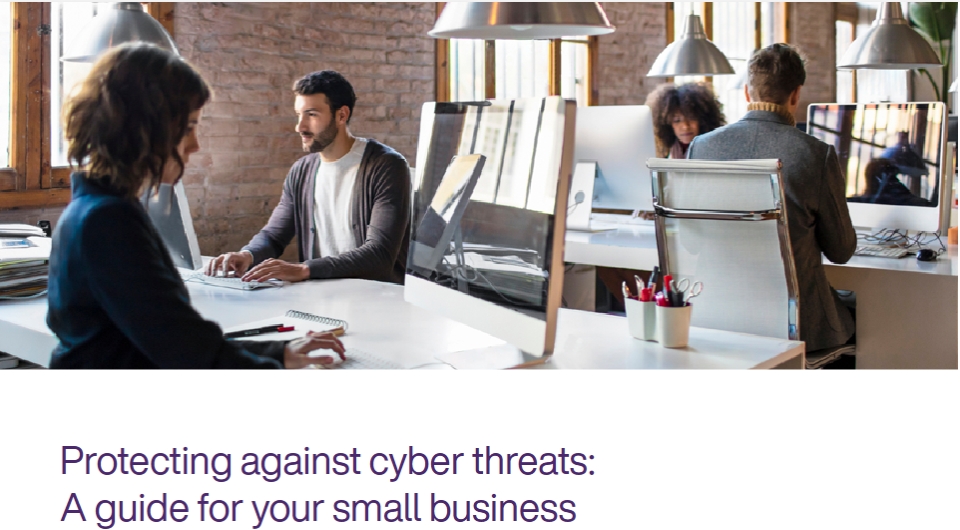When asked why he robbed banks, American criminal and FBI Most Wanted Fugitive Willie Sutton answered: “Because that’s where the money is.” The growing and always-evolving industry of cybercriminals might offer a similar answer if asked why they’re increasingly targeting businesses like yours. After all, unless your organization is a large enterprise with thousands of employees and an extensive IT department, hackers have good reason to be confident that:
A recent Mastercard study shows small Canadian business owners need additional support to effectively prevent and recover from cyberattacks.4 With that in mind, this guide highlights the importance of prioritizing cybersecurity as a must for businesses. You’ll learn about some of the sophisticated tactics used by cybercriminals, and the types of best practices and solutions that can help protect your company from attacks and data breaches.
Hackers and their organizations are becoming more sophisticated over time. They methodically study the pool of potential victims and seek out the ones they believe offer the highest chances of a payoff. Cybercriminals will continue to evolve their tactics, according to the Government of Canada12, including targeting more small and mid-sized companies, in order to avoid attention-grabbing, higher-profile attacks.
Cybercriminals also know that smaller companies are more resource constrained and often need to prioritize other operational expenses over IT and cybersecurity. Those realities, the hackers assume, make these businesses easier targets than large enterprises. Unfortunately, hackers are often correct in this assumption. As the CFIB study also found, despite the high rates of attacks against them, only 11% of business leaders running small and mid-size organizations offer mandatory cybersecurity training to their employees.13 Even taking the more encouraging statistic from the Insurance Bureau of Canada (IBC) that 34% of employees say they receive mandatory cybersecurity training14, that number should still be cause for concern, because it means two-thirds of employers don’t teach their staff basic safety measures for protecting their companies’ data and digital infrastructure. The decision to prioritize other areas of the business represents a significant missed opportunity. Cybersecurity training for all employees could help reduce what our own TELUS Canadian Cloud Security Survey found to be the top cause of cyberattacks – human error.15 As the IBC survey found, 69% of small business owners don’t even consider fortifying their digital environments a financial priority.16 Cybersecurity is essential to your company’s bottom line, your ability to continue operating and even your reputation and trust with customers and the public. Cybersecurity risks are becoming more prevalent and widespread than ever, making this the best time to explore ways to strengthen your
business’ security.
This article is posted at telus.com

Please fill out the form to access the content



